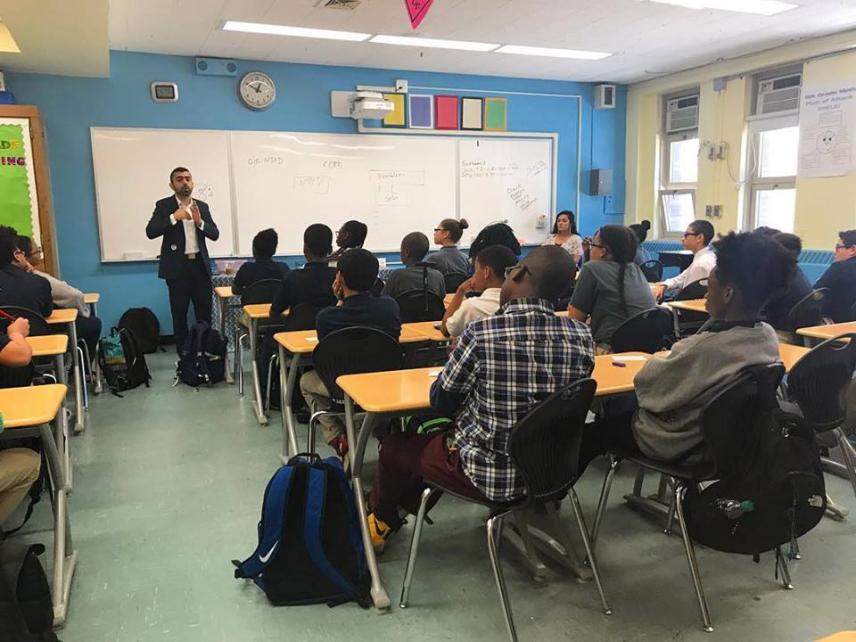NYU Wagner alum bridges divide between vulnerable communities and police
Police-community relations is a much-discussed topic in America, especially in recent years. However, gathering information from communities—especially vulnerable populations—about the various issues and challenges they face can be complicated.
“Talking about policing issues isn’t something some communities are readily apt to do,” said NYU Wagner alumnus Hassan Naveed (MPA-PNP 2016).
As the Director of Outreach for the Department of Investigation’s Inspector General for the New York City Police Department (DOI IG-NYPD), Naveed strategizes on how to best work with vulnerable populations.
“DOI’s IG-NYPD’s ideal world is a place where everyone in the public has full confidence in police and the criminal justice system,” he said. “It’s essential for the criminal justice reform movement and police oversight field to focus on addressing issues that impact the most vulnerable. These include sexual assault victims, LGBTQ people, and undocumented immigrants, among others. In my current role, I’ve worked on investigations on these issues, and continually look to outreach and engage with these populations.”
Born and raised in a working-class community outside Los Angeles, Naveed saw the impact of racial and economic inequity within his high school.
“We had police on campus, race riots, and my school was majority students who received reduced or free lunch. I was coming from a place where 8-10% of my high school class went directly into a four-year college after senior year. There were lots of injustices. The circumstances that our communities were put into were unacceptable.”
It was this experience that drove him towards public service, especially in criminal justice. Naveed considers his NYU Wagner education to have been critical preparation for his current role. Through the Management and Leadership specialization he took courses that built his communication, quantitative evaluation, and strategic planning skills. He describes Performance Measurement and Management, a course focused on managing organizations through the effective use of data, as having pushed him “to be able to engage on issues and topics I had never worked on before with people from different work backgrounds.” He added, “I had to apply general models and build them to work in the policy realm.”
While he uses a range of skills built at NYU Wagner in his current work, much of the job depends on his ability to communicate and build trust with a diverse group of stakeholders. “Being culturally competent and coming [to issues] with a high level of understanding and empathy makes people comfortable talking about tough issues.”
Recently, Naveed’s team produced a report on how the NYPD handles U visa certification requests. U visas are special visas granted to undocumented immigrants who are victims of crimes and who help law enforcement investigate and prosecute those crimes. People who hold U visas are able to legally work in the US and after a few years are eligible for permanent residency. The visas were created to “build relationships between undocumented communities and police.”
“We don’t want undocumented New Yorkers to feel threatened by crimes committed against them and scared to work with police to solve crimes, and we don’t want to create a class of crime that goes unreported,” said Naveed. “We’re engaging with these populations that are victims and survivors of horrible incidents and we’re working to address larger issues where these communities don’t feel comfortable engaging with the police because of their immigration status, a fear of deportation, or past experiences. It’s important to learn more about what these communities are facing, and build [a] strong rapport to addresses their needs.”
Naveed aims to spread awareness about the work the Department of Investigation’s Inspector General for the NYPD is doing, with the hope that more New Yorkers will understand how their work has impacted the NYPD’s policies and practices.
“The criminal justice system has a long way to go to address the issues facing vulnerable populations,” said Naveed.
